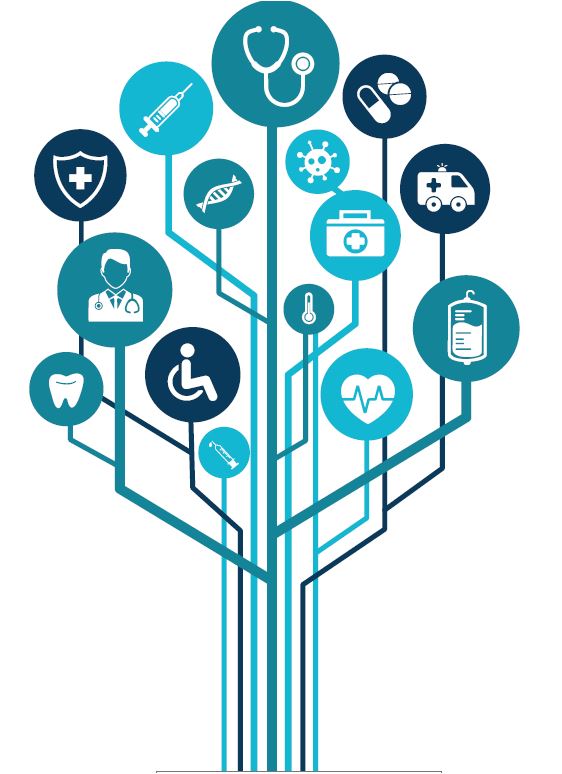Home » Health Information Bill
The upcoming Health Information Bill aims to revolutionise how health information is managed, shared, and protected, promising profound changes for healthcare providers and patients alike. At the forefront of these changes are community pharmacies, who stand to benefit greatly from the new Bill. In this article, Alan Reilly, Head of Information and Digital Strategy at the IPU, explores the Health Information Bill, including what it will introduce, and what it means for community pharmacies.

The General Scheme of the Health Information Bill was published in April 2023 and is now priority legislation for the Summer Legislative Programme, with publication expected in early July 2024. The Bill would then proceed to Committee stage in the autumn. Drafting of the Bill has required careful regard to the developing regulatory environment for health information at EU level — specifically the adoption of the European Health Data Space (EHDS) Regulation, a topic explored in the June issue of the IPU Review. The EHDS Regulation will come into force in the autumn with direct effect in Member States and will impact the governance and infrastructure requirements for health information at the national level. There will be a number of substantive drafting changes to the Health Information Bill as compared to the approved General Scheme, in light of these developments.
The Bill promises significant implications for community pharmacists, placing them at the forefront of patient care and data management. It also introduces several key provisions aimed at enhancing data sharing, accessibility, and patient care. These changes could potentially streamline operations for community pharmacists and improve patient outcomes.
The Bill begins by defining key terms such as “health information,” “health practitioner,” and “summary care record”. Central to the Bill is the creation, management, and access to health records, especially the Summary Care Record (SCR). The SCR aims to consolidate an individual’s medical history, making it easily accessible to healthcare providers. This step is crucial for community pharmacists, who often serve as the first point of contact in the healthcare system. However, it might be prudent to avoid embedding too much detail about specific record types in the primary legislation.
Pharmacists having access to SCRs will be vital, particularly during transitions of care. Accurate medication information can significantly reduce errors and prevent readmissions, underscoring the essential role of pharmacists in patient care. Community pharmacists’ access to patient medical records can significantly address issues related to transitions of care. Accurate medication information is vital during hospital admission and even more critical upon discharge to prevent medication mismanagement, a leading cause of readmissions. Access to comprehensive and accurate medical records would enable community pharmacists to verify and reconcile medications, ensuring continuity and safety in patient care. This would help reduce medication errors, decrease hospital stays, and prevent avoidable readmissions.
The Bill mandates the provision of health information for relevant purposes, improving the efficiency and safety of healthcare services. This requirement is essential for enhancing healthcare delivery and patient safety.
It is important to understand the distinction between the GDPR (General Data Protection Regulation) and the Health Information Bill. While the GDPR is primarily concerned with protecting sensitive personal information and ensuring individuals’ privacy rights, the Health Information Bill focuses on sharing health information to enhance patient care. The GDPR establishes strict rules for the collection, storage, and processing of personal data, ensuring that individuals have control over their information and that it is protected from misuse.
In contrast, the Health Information Bill aims to facilitate the sharing of health information among healthcare providers. This sharing is crucial for delivering coordinated and effective patient care. For example, when a patient moves from a hospital to a community pharmacy, sharing accurate and comprehensive health records can prevent medication errors and ensure continuity of care. The Bill seeks to balance the need for data protection, as outlined by the GDPR, with the necessity of sharing information to improve healthcare outcomes.
Clarifying the duty to share health information for care and treatment purposes can support healthcare providers who may be unsure of their legal standings, thus promoting better patient care. To support pharmacists with new obligations, appropriate access to the national shared care record system will be crucial.
A significant provision of the Bill is the obligation for health service providers to forward a patient’s health record to another provider upon the patient’s request. This ensures continuity of care when patients change providers. In community pharmacies, where record transfers are common, this measure is practical and necessary for maintaining seamless patient care.
An important aspect of the Bill is the emphasis on safeguarding personal health data. Implementing robust organisational, physical, and technical measures ensures data protection compliance and builds public confidence. These safeguards are vital for maintaining trust in the healthcare system and ensuring the responsible handling of sensitive information.
For community pharmacists, adhering to cybersecurity best practices is essential and has been a keen focus in recent times. To support members, the IPU regularly features cybersecurity articles in this magazine and there is a dedicated section on our website at ipu.ie/cybersecurity. Best practices include:
By following these cybersecurity best practices, community pharmacists can safeguard personal health data, comply with data protection regulations, and maintain public trust.
The establishment of the National Health Information Authority (NHIA) is a key feature of the Bill. This body will oversee health information developments and ensure the effective implementation of the Bill. It is useful to distinguish the NHIA from the existing Health Information Quality Authority (HIQA).
The key differences between NHIA and HIQA are:
The use of Personal Public Service Numbers (PPSNs) for recording vaccination events has been particularly effective, as demonstrated during the COVID-19 pandemic. Further use of the PPSN to access healthcare services will be provided for under the Bill, which will be a big support accurately recording patient information and streamlining interaction between health information systems.
When it comes to using personal information, such as the PPSN, and sharing patient records with other healthcare professionals, building and maintaining public confidence is crucial. To that end, the NHIA will convene an annual Consultative Forum on Health Information to engage with the public, listen to concerns, and provide feedback. Given their frequent interaction with patients, community pharmacists are well-placed to represent public concerns and champion health services. This consultative process can significantly benefit from the insights and experiences of pharmacists, ensuring that the system remains patient focused.
The Bill provides for the appointment of a National Health Information Guardian, a role similar to the Data Guardian in England. This high-profile healthcare professional will be someone with extensive experience and a deep understanding of health information management. The Guardian’s role is to promote best practices in handling health information and build public confidence. They will advise and challenge the health system, ensuring that confidential health information is safeguarded and used appropriately to support direct care and achieve better health outcomes.
In England, the Data Guardian, formalised by the Health and Social Care (National Data Guardian) Act 2018, advises the UK government and the health and adult social care system on data confidentiality, security, and patient data choice. Similarly, Ireland’s National Health Information Guardian will engage with the Data Protection Commission, ensuring a collaborative approach to addressing systemic issues related to health information. This partnership will help build public confidence and promote best practices in the handling of health information. Encouraging public awareness of health information issues can further enhance trust and engagement.
While the Health Information Bill 2023 presents many opportunities, it also brings challenges for community pharmacies. The transition to a new system of electronic health records will require significant investment in technology and training. Pharmacists will need to adapt to new data management practices, ensuring they comply with stringent data protection regulations.
Moreover, the detailed involvement of pharmacists in the management of Summary Care Records necessitates a robust understanding of the legislation and its practical implications. Ensuring seamless integration of SCRs into existing pharmacy workflows without disrupting service will also be crucial and IPU involvement in these eHealth initiatives will ensure these things are considered.
Another challenge lies in the accurate and consistent updating of patient records, particularly during transitions of care. Community pharmacists will play a critical role in ensuring that medication records are accurate, which is vital for reducing medication errors and improving patient outcomes.
The Health Information Bill 2023 promises to reform how health information is managed and shared in Ireland. For community pharmacists, it represents an opportunity to significantly enhance their role in patient care. The Health Information Bill represents a significant step forward for the healthcare sector, with community pharmacies poised to reap substantial benefits. By improving access to patient data, enhancing data security, and empowering patients, the Bill promises to transform community pharmacies into more integrated, efficient, and patient-centric components of the healthcare system. As we move into this new era of health information management, community pharmacies will play a pivotal role in realising the Bill’s vision of a more connected and effective healthcare landscape.
In summary, the Bill highlights the importance of flexibility, practical implementation, and the critical role pharmacists play in the healthcare system. As the Bill progresses through legislative procedures, the involvement and insights of community pharmacists will be essential in shaping a healthcare environment that benefits all.
The Health Information Bill, like any piece of legislation in Ireland, must pass through several stages in the Houses of the Oireachtas (the Irish Parliament) before becoming law. The process includes:
Alan Reilly

Head of Information and Digital Strategy, IPU
Highlighted Articles